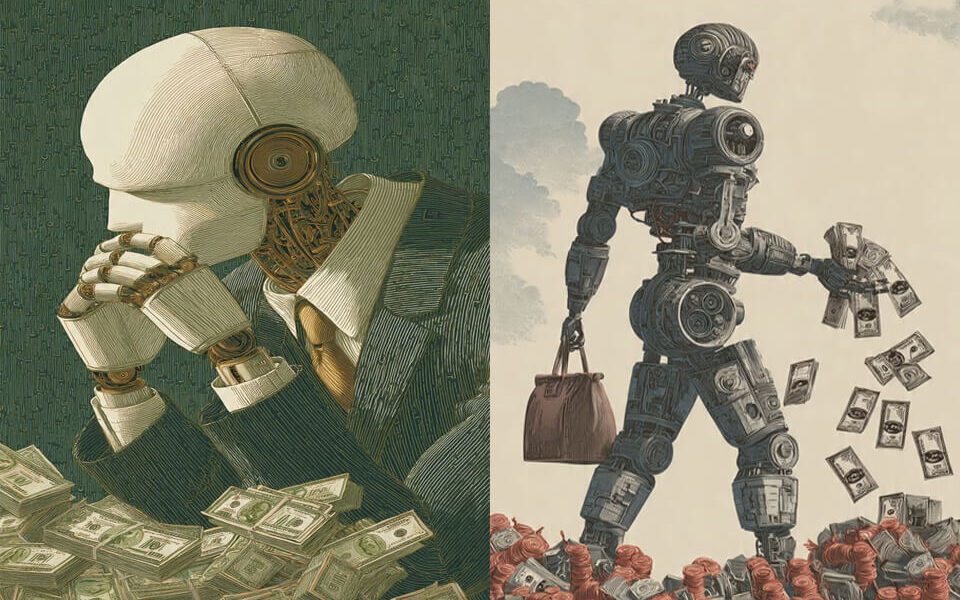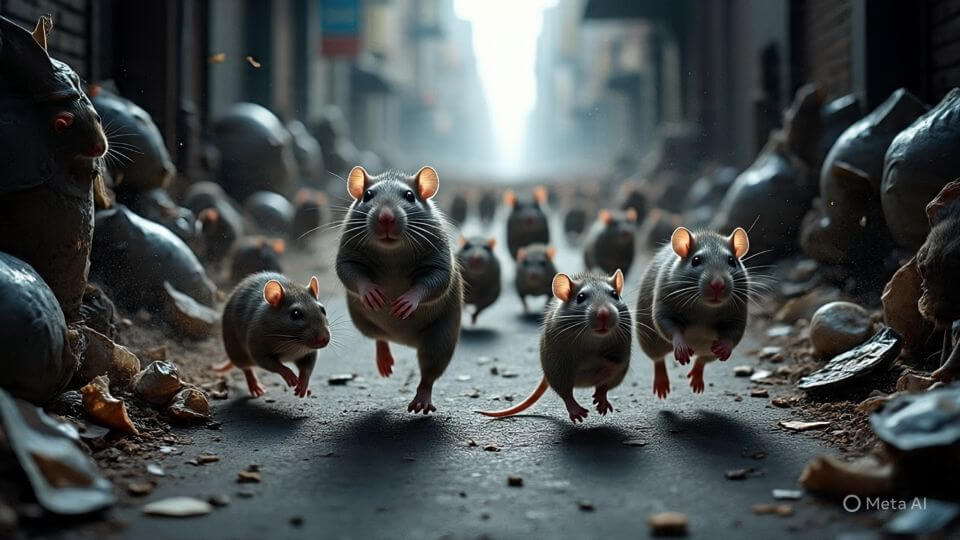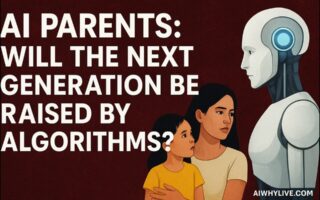The Infinite Verb Meets the Finite Human
📖 Abstract
Every functioning system—whether a programming language, a political regime, or an economy—operates on a Grammar: rules, syntax, and accepted structures. For the last five centuries, the Grammar of Money has been built on three primary components: Scarcity, Friction, and Effort (Time = Value). This grammar dictated the entire economic conversation, and the Rat Race was simply the purest execution of its syntax.
Artificial Intelligence, with its capacity for zero-cost, instantaneous creation and infinite replication, is not just another tool—it is a Grammar Violation. It introduces the Infinite Verb into a language built on finite nouns.
The question isn’t if AI will break the economy. The question is why we are so psychologically incapable of accepting that the game has already changed. We are still running the race, even though the track has been paved over by algorithms.
🐀 The Rat Race as Grammar School
The Rat Race was never just a social construct—it was the direct consequence of the Old Grammar of Money.
- Rule 1: Friction is Value. If a task was difficult, slow, or required specialized skill, it commanded a high price. Writing a novel, designing a chip, or analyzing a market report justified compensation.
- Rule 2: Effort is Currency. Time was finite. Your unique, non-scalable unit of labor was the only medium of exchange. You sold hours because hours could not be automated.
- Rule 3: Scarcity is Mandatory. If something could be easily replicated, its value collapsed. Copyright, patents, and gatekeepers enforced scarcity.
The Rat Race was therefore an optimized machine for converting human anxiety into economic output. A beautiful, ruthless syntax—until AI arrived.
🤖 The New Grammar: The Infinite Verb
AI did not just automate tasks—it attacked the grammatical rules themselves.
| Old Grammar Component | AI’s New Verb/Function | Consequence |
|---|---|---|
| Friction | AutoGenerate() | Zero-cost instant replication of complex outputs (code, art, text). Value of skill collapses. |
| Effort | ContinuousLoop() | Content/products/data produced at an exponential scale. Value of intellectual property becomes ambiguous. |
| Scarcity | ReplicateInfinitely() | Content/products/data produced at an exponential scale. The value of intellectual property becomes ambiguous. |
AI is the Infinite Verb because it destroys the relationship between input (effort) and output (value). A five-second prompt can generate months of content. The Grammar of Money is now forced to contend with the philosophical reality of Infinite Abundance.
🧩 The Cognitive Glitch: Why We Still Run
If value creation is now automatic, why are we still obsessed with the grind? Why are Prompt Jockeys and AI architects still clocking 70-hour weeks?
This is the Rat Race Glitch: a deep-seated cognitive failure to update our internal operating system.
- The Protestant Work Ethic as Wetware: We were taught that idleness is immoral and struggle is virtuous. The idea that a machine can generate millions in value while we watch a nature documentary feels like cheating—or worse, a moral failure.
- The Visibility Paradox: The Rat Race provides visible proof of self-worth. If you stop running, your value becomes invisible, even if your AI systems generate record profit. We fear that stopping the visible grind will expose us to the one thing we dread: the realization that our struggle was meaningless.
- The Scarcity Addiction: Our political and social structures are built on managing scarcity. If AI solves scarcity, gatekeepers lose their primary function. We cling to the grind because it remains the last reliable means of stratification and control.
🧒 Too Cryptic? Explain Like I’m 12
Imagine money is like writing sentences.
Before, you had to write long essays by hand to earn money. Now, AI is like autocorrect—it writes faster than you.
But here’s the trick: if you only let AI write random words, your sentences don’t make sense. If you learn how to guide it, your sentences become powerful stories—and people pay more for stories than for random words.
That’s the grammar of money in the AI age.
📢 Conclusion: The Quiet Obsolescence of the Human Grind
The Grammar of Money is broken. The language of capital no longer requires human friction to articulate value. The market now rewards those who write the best AI syntax—the system designers—not those who execute the tasks.
Yet we continue to run. We use AI to grind faster, not to stop grinding. We cling to the Rat Race because it is the last familiar structure in a world destabilized by abundance.
The ultimate tragedy is not that AI will take our jobs. It’s that AI has already made our most deeply held philosophical belief—that hard work is the path to freedom—obsolete. And we are choosing to ignore the evidence, preferring the comfortable exhaustion of the familiar struggle.
Welcome to AIWhyLive.com, where we calculate the value of your philosophical redundancy.







